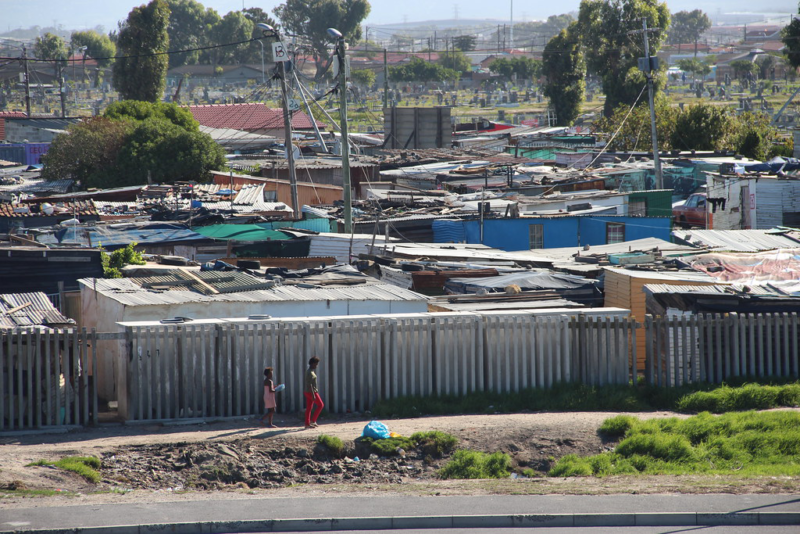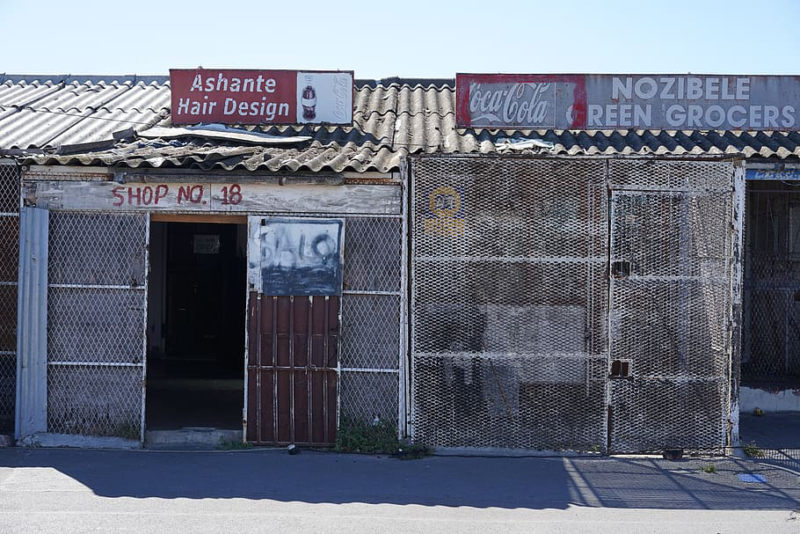Poverty rises, inequality shifts as Covid-19 impact continues unabated
(This article was first published on News 24 08-05-2020)
Many have to fall back on that familiar South African last resort, the extended family. It will take some time before the full effect of Covid-19, the lockdown and recession will be clear, writes Servaas van der Berg.
The tentacles of Covid-19 are everywhere. From an economic perspective, it has a direct effect on the need to strengthen and expand the health system.
But its indirect economic effects are much larger, through the lockdown with all its attendant effects, and the global recession which will continue even after the lockdown is over.
Already, some economists are forecasting a contraction of 10% in economic activity this year, and even this might be optimistic.
Thank heavens for the grant system!
Economic contractions do not affect everyone equally.
Those most affected are tenuously linked to the modern economy. Workers in public employment and in most large firms are relatively protected.
The jobs least affected by the lockdown are those that can be done from home using computers and internet connections which favour professionals and skilled workers.
The least protected are those who cannot work from home who have been in low-wage employment, in small firms or engaged in informal activities.
Before the crisis, South African income inequality was already extremely high, higher than has been observed anywhere else in the world.
If those losing their income sources were already earning low incomes, this would worsen inequality, but may not increase measured income inequality all that much.
The already massive gap between high income earners and low income ones will not grow much further when people who had little income to lose become poorer.
Thus measured income inequality may increase moderately from its already exceptionally high level.

Two children walk outside of Valhalla Park in Cape Town
What about poverty?
An opinion piece by Ihsaan Bassier, Joshua Budlender, Murray Leibbrandt, Rocco Zizzamia and Vimal Ranchhod in The Conversation showed a reduction of three-quarters of all informal income due to the lockdown would, on its own, increase extreme poverty, defined as an income of less than about R7 000 per person per year, from around 14% of the population to around 21%.
But these authors also showed that many informal sector workers were in households where there were also recipients of the child support grant (CSG).
The CSG, the star social policy reform of the post-transition period in South Africa, has been shown to have many benefits, inter alia for child nutrition, stimulating job search and labour force participation of women, and ameliorating rural poverty.
Now it offers a vehicle for reaching the poor and enhancing their income at a time when such vehicles are in short supply.
Bassier and co-authors demonstrated that increasing the value of the CSG would counter the impoverishing effect of the lockdown on informal income.
If such an increase in the value of the CSG is large enough, it may even reduce poverty, all other things being equal.
The government too saw the value of using this grant and used it as a major social relief measure, although not quite to the degree these authors had advocated.
But the CSG cannot reach all who need social relief. Households fully dependent on informal sector income would not gain from an increase in the CSG and many would sink into extreme poverty, while some who were mainly dependent on the CSG may be lifted above the poverty line.
Other grants have also been increased.
The increase in the social old age pension is particularly welcome news for many rural households. Households in rural areas in particular, tend to form around income so the raised old age pension has wide benefits.

An empty hairdresser in a Johannesburg township
The demise of small entrepreneurs
The drying up of both informal and much formal sources of income during the current lockdown period changed economic prospects for many South Africans, not only poor ones.
In an economy desperate for sustained long-run growth to lift more people out of poverty, the lockdown and recession will have a devastating effect on small entrepreneurs who must serve as a major engine for growth in any long-run growth process.
Many, who had gambled by embarking on an entrepreneurial career and started new firms or businesses – even very successful ones – may not survive the lockdown or recession.
The tools at the disposal of the government to assist are limited and difficult to use: the scope for mismanagement and even corruption is large, the bureaucratic process complex, and the criteria for support difficult to apply.
Nor is there much fiscal space for even well-targeted and administered government support.
The way in which much of the funding voted for small businesses by the US Congress ended up in the coffers of big business is an example of how difficult it is to target such instruments well.
Many small businesses, formal or informal, will thus probably not survive.
Some may rise from the ashes, perhaps even reposition their business to be better attuned to the new landscape; others may give up and join the job queue.
Those with specific skills and knowledge of the working of business may even jump to the front of that job queue. Some may, once the economy again returns to growth – currently a dim prospect – return to informal or other entrepreneurial activities.
But all would bear the scars of the virus and its terrible twins, the lockdown and recession.
Rural-urban migration, households and education
I mentioned earlier that South African households often form around sources of income. In rural areas, old age pensions act as a magnet, drawing in the unemployed, the non-economically active and children to what often become granny-headed households, while many other household members are in the cities working or searching for jobs.
So, children may remain while parents move to urban areas.
The children may later join a parent or parents in the cities, often when entering primary or high school.
While part of the household remains in a rural area, rural pension incomes may be supplemented by child grants and remittances from urban household members.
As urban roots grow stronger over time, fewer household members may remain in rural areas.
What will happen now that many urban individuals have lost their jobs or sources of income? We know that, during the Level 5 lockdown, many such people moved back to their rural homes.
If the jobs or informal business opportunities that attracted them to urban areas are gone, how many would give up and rather remain in the relative familiarity of their rural homes rather than starting the search for an urban income afresh?
Perhaps this may be true, especially for those who are only a few years below the age of pension-eligibility. On the other hand, remittances may also dry up.
And what about the children who have been brought back to the rural areas?
It is not clear if all will return to their schools in urban areas.
Perhaps we could see some shifts in the school-going population when schools resume, with some rural schools expanding at the expense of urban ones.
That may not last once economic growth resumes but in the meantime, it may not make education planning any easier.
Deeper inequalities remain
So the lockdown has affected different people differently.
Some have been plunged into poverty, while others have been rescued by relief measures such as the grant supplementation.
Some have seen their dreams of successful businesses shattered.
Many have to fall back on that familiar South African last resort, the extended family.
It will take some time before the full effect of Covid-19, the lockdown and recession will be clear.
Income inequality may rise moderately, and poverty much more.
But Covid-19, the lockdown and recession again put the spotlight on deeper inequalities in our society, such as inequality of opportunity, of support structures, of safety nets, and of health services, to name a few.





